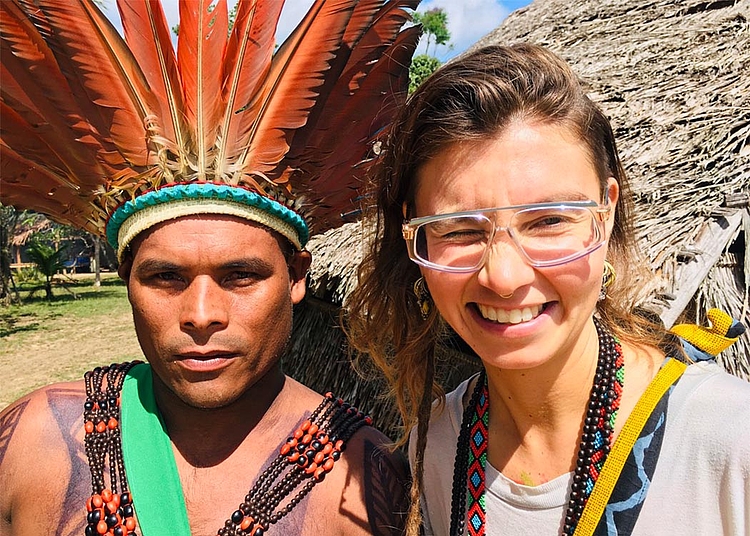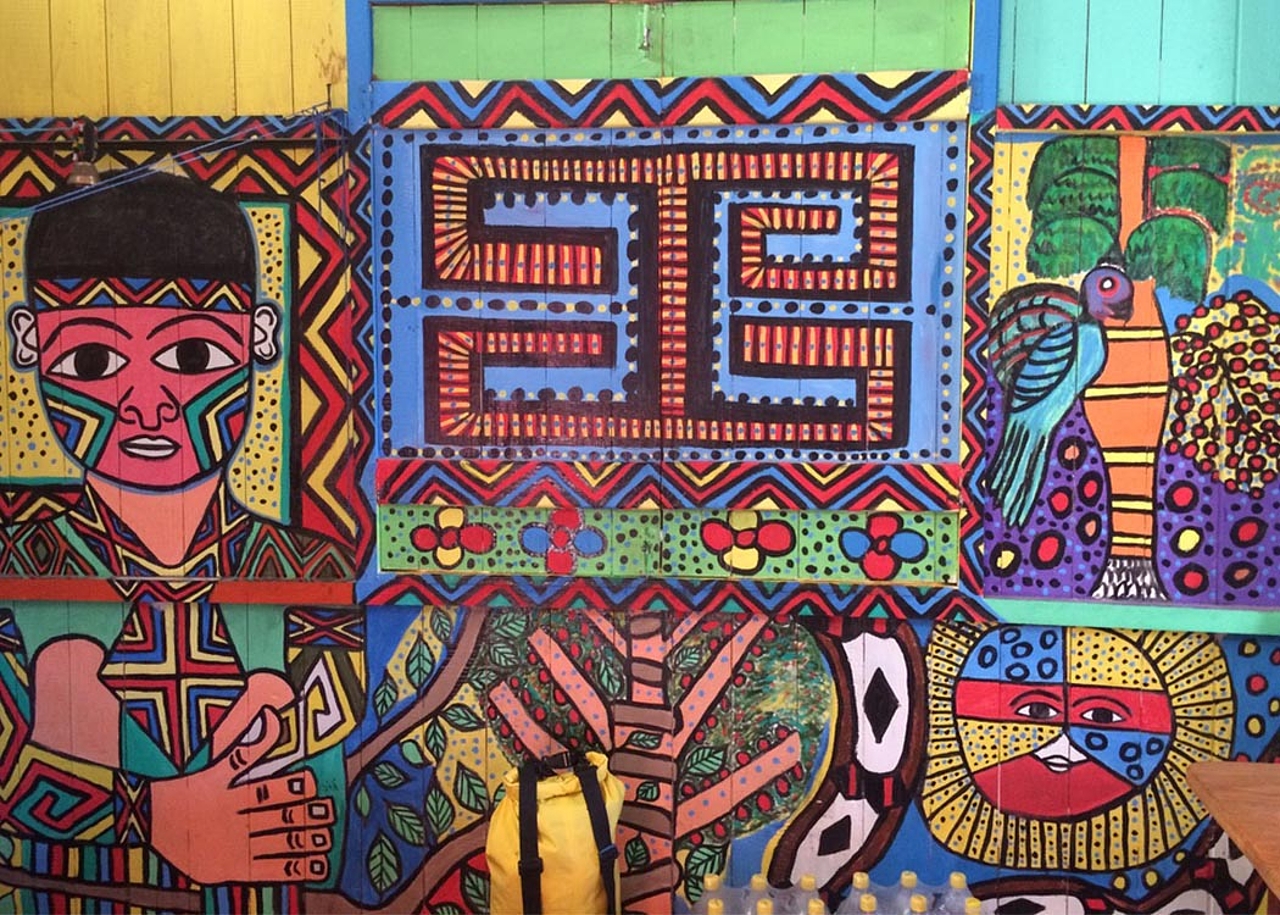You have already lived with indigenous people for ten years and will now be going back to the Brazilian and Peruvian jungle over the upcoming winter semester while studying the distance learning study program M.A. Visual and Media Anthropology online. That sounds amazing! Please tell us more about it!
Yes, I have been calling Perú my home for many years and have been based in the Andes, and this is where I will return to in September. I’d like to spend some time with my indigenous friends in a remote Quechua-community on around 5000 meters altitude: to sit and share with them, get inspired through their ways, learn more Quechua and stay open for what might come out of our communal time. I’d like to take the practice of Prayer into focus.
Afterwards, for the rainy season, I will return to the lowland-jungle in Northern Perú, to meet with a curandero (healer) with whom I have worked for two years in isolation while I was dieting different medicinal plants. He comes from the Vegetalista-lineage, which means that his focus of healing work is based entirely on the plant realm. Out of reasons of privacy and confidentiality I will not go into detail now about my research project there.
Depending on the general travel situation in South America, I would love to return to Brazil as well, where I have visited, during multiple journeys, indigenous communities in the rainforest. Some of those friends I haven’t visited since the beginning of the pandemic, it’s time to return for me. I also have a couple projects going on with them. I would love to visit new communities and regions in Brazil, and as I know already, planning jungle adventures ahead is one thing and allowing the journey to guide you is another, meaning: No need for planning, honestly. I am also intending to making my way to the jungles of Colombia and Guyana, to prepare a future-expedition to Mount Roraima/Tepuis. This place has been calling me for years.








